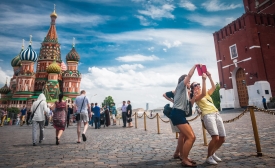turkey
In the age of digital diplomacy, governments often turn to social media following a crisis, be it a terror attack or natural disaster. Social media may be used by governments in order to comment on crises as they develop, offer a narrative of events and demonstrate that the government is functioning and attempting to regain control of the situation.

On Turkey's social media handling of the recent coup attempt.

The societal pros and cons of a life spent online.
Turkey's Aegean coast is major travel destination thanks to its Blue Flag beaches and resorts but tourism officials agree that more attractions are needed. A new gastronomy project introducing Greek cuisine with modern interpretations to tourists is expected to drive tourism further
While working for a Turkish tech firm, Akil learned how to program for mobile phones, and decided to make a smartphone app to help Syrians get all the information they need to build new lives in Turkey. In early 2014, he and a friend launched Gherbtna, named for an Arabic word referring to the loneliness of foreign exile. [...] “Our ultimate dream for Gherbtna is to reach all refugees around the world, and help them.”
In a visit to Armenia, Pope Francis has urged the world to never forget the Ottoman-era slaughter of some 1.5 million Armenians which he termed a genocide – a characterization likely to cause tensions with Turkey.
Greek Prime Minister Alexis Tsipras said on Wednesday the Greek government will start constructing a mosque and a Muslim cemetery for the Muslim minorities in the city. Speaking at the Council of Europe in Strasbourg, Tsipras touched on refugee flows and the Greek government's efforts to improve the fundamental rights of minority groups living in Greece. Tsipras's promise concerns 200,000 Muslims living in Athens, while Athens is known as the only capital without a mosque in Europe.
The state's Turkish International Cooperation and Coordination Agency (TIKA) has launched a rural development program for one of Namibia’s most important ethnic groups, the San people, an official statement said Saturday. The San, also known as the Basarwa or Khwe, have deep roots in Namibia going back some 20,000 years.







